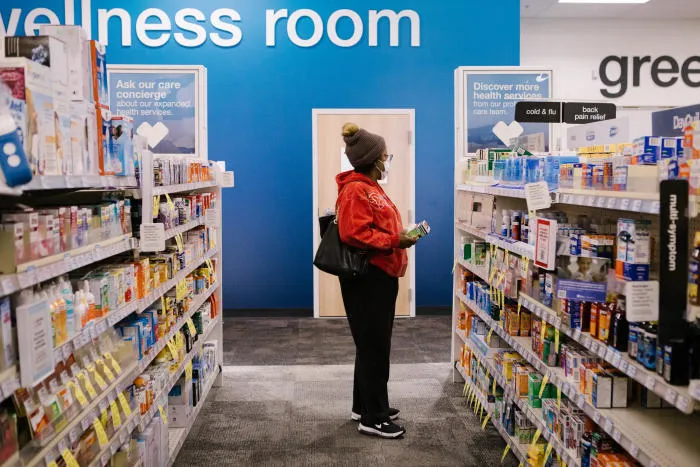UnitedHealth’s Recent Struggles
In the ever-changing landscape of the healthcare industry, few companies have managed to dominate the market as strongly as UnitedHealth Group. A leader in health insurance and healthcare services, UnitedHealth’s recent plunge in value — losing half of its stock price in just six months — has sent shockwaves through the investor community.
CEO Shakeup: An Unexpected Turn
The sudden announcement of CEO Andrew Witty stepping down from his position for ‘personal reasons’ came as a surprise to many. Witty’s strategic vision has been considered one of the pillars of UnitedHealth’s success during his tenure, leaving investors and analysts scratching their heads about the future direction of the company.
This unexpected leadership change raises several questions: Is this a simple case of personal circumstances or is it indicative of deeper issues within the company? Can UnitedHealth recover, or is its current predicament more than just a short-lived hiccup?
Market Reactions: A Deeper Analysis
Investor reactions have been swift, with a significant drop in stock prices post-announcement. However, some analysts argue that this market reaction may be overly harsh.
The reality is that while UnitedHealth’s struggle is significant, there are mitigating factors. For instance, the overall healthcare sector has faced challenges, from regulatory changes to rising costs, creating a complex environment for all market players. UnitedHealth’s issues may not imply an impending doom for the entire organization; rather, they could represent a moment of recalibration.
An Isolated Incident?
One of the main arguments presented by optimistic analysts is that UnitedHealth’s crisis could be largely isolated. The issue lies not necessarily with the company’s business model, but rather with the execution of its strategies amid external pressures.
Recent legal and regulatory challenges, such as healthcare disputes over pricing transparency and insurance coverage, have contributed to uncertainty in the market. These external factors may have an outsized influence on the company’s performance, independent of the leadership change. Thus, while the CEO departure seems alarming, the overall business model of UnitedHealth remains strong and competitive.
Future Prospects: What Lies Ahead?
UnitedHealth serves millions of people, and its vast network includes not just health insurance but also data analytics and technology-driven healthcare solutions through its subsidiary, Optum. This diversified portfolio positions the company well as it navigates turbulent waters.
Experts emphasize that UnitedHealth must aggressively pursue new leadership that prioritizes innovation and adaptability while also maintaining strong communication with investors. Stability will be key as the company toys with tactical resets in both service and operational structures.
Potential for Recovery
Despite the downturn, indicators such as customer loyalty, market share, and the need for comprehensive health services suggest that once the leadership issues stabilize, UnitedHealth has a solid footing to recover. Healthcare is an essential industry that remained resilient even during the pandemic, often proving steps of resilience.
Contributing Factors to Decline
Various factors playing a crucial role in the company’s decline should not be overlooked. The upcoming regulations and potential legislative changes in healthcare could impact the business model — some positively, others negatively.
Furthermore, rising competition from smaller startups focusing on technology-driven models could disrupt traditional providers like UnitedHealth. Increasingly, consumers are gravitating towards companies offering convenient, tech-friendly solutions with lower premiums — a trend that has forced established players to adapt or risk losing market share.
Valuable Lessons and Necessary Adjustments
What UnitedHealth experiences in the coming months could serve as an important teaching moment not just for the company itself but for the entire healthcare sector. As market dynamics change, established entities must be ready to pivot, innovate, and evolve their business practices to stay ahead.
Analyzing Investor Sentiment
Investment communities often react to news with high volatility, leading to rash behaviors that may not align with the company’s long-term potential. Current investor sentiment toward UnitedHealth may be a reflection of broader anxieties surrounding the healthcare sector rather than a true reflection of UnitedHealth’s operational health.
Long-term investors are encouraged to assess the situation with a balanced perspective. This unexpected leadership change may result in a reevaluation of strategies that could very well lead to a refreshed and revitalized company, positioning UnitedHealth back at the forefront of the healthcare industry.
Conclusion
UnitedHealth Group’s recent challenges should not diminish its profound contributions to healthcare and the foundations of its business model. While the departure of CEO Andrew Witty signals a moment of uncertainty, it could lean towards being more isolated than what current investors speculate.
Ultimately, the company will need to reignite investor confidence through effective strategies and innovative leadership. Consolidating its existing strengths while embracing change is crucial if UnitedHealth is to navigate toward a brighter horizon amidst a complex healthcare landscape.






